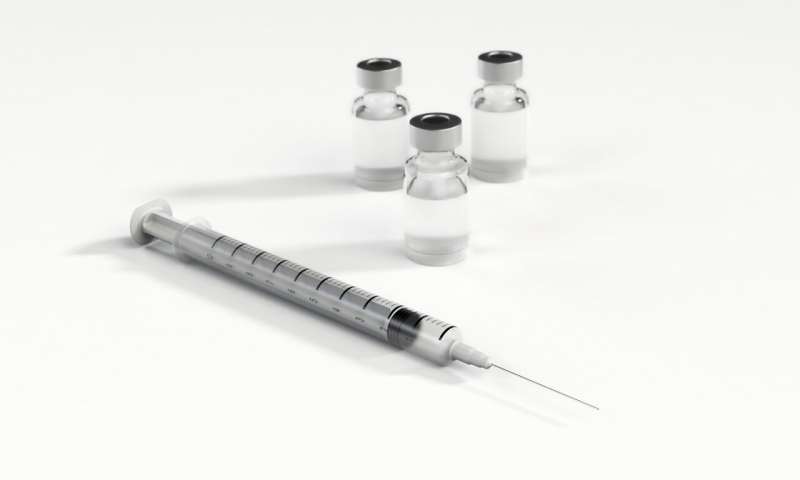Few differences in safety profiles of Moderna, Pfizer COVID-19 vaccines

Both the Moderna and Pfizer COVID-19 vaccines have a low risk of adverse events over a 38-week period, according to a study published today in JAMA Internal Medicine by team of researchers from the VA Boston Healthcare System, the CAUSALab at Harvard T.H. Chan School of Public Health, Brigham and Women's Hospital, and Harvard Medical School.
"For individuals planning to be vaccinated, I would highly recommend either vaccine, depending on which is first available," said corresponding author Dr. Arin Madenci, a visiting scientist at Harvard Chan School. "Adverse events were rare after both vaccines, particularly when compared with the health risks driven by infection with SARS-CoV-2, the virus that causes COVID-19, which both vaccines are highly effective at preventing."
The study compared the head-to-head safety of the two vaccines, based on the adverse events experienced by 433,672 Veterans in the VA's national healthcare databases. The median age for the cohort was 69 years, 93 percent were male and 20 percent were Black.
A large panel of potential adverse events was evaluated, and risks over 38 weeks were generally low after receipt of either vaccine. Veterans receiving the Moderna vaccine were slightly less likely—a difference of less than two-tenths of one percent—to experience stroke, myocardial infraction, other thromboembolic events, or kidney injury.
"While small for any individual person," Madenci noted, "these differences may help inform future population-level vaccination efforts."
The study followed earlier research, which found that both vaccines are highly effective in preventing breakthrough infections and severe COVID-19, and that Moderna was slightly more so.
"The richness of VA's large electronic health records database combined with expertise in phenomics data science allowed us to conduct this important analysis," said Dr. Kelly Cho, a co-investigator and director of data science and analytics for the VA Cooperative Studies Program Epidemiology Center at VA Boston HCS. "This is a great example of our partnership with Harvard Chan School through the VA-CAUSAL Program, which is funded under the VA Office of Research and Development."
More information: Barbra A. Dickerman et al, Comparative Safety of BNT162b2 and mRNA-1273 Vaccines in a Nationwide Cohort of US Veterans, JAMA Internal Medicine (2022). DOI: 10.1001/jamainternmed.2022.2109





















